Jamie McDonnell: A remarkable career from Doncaster's very best
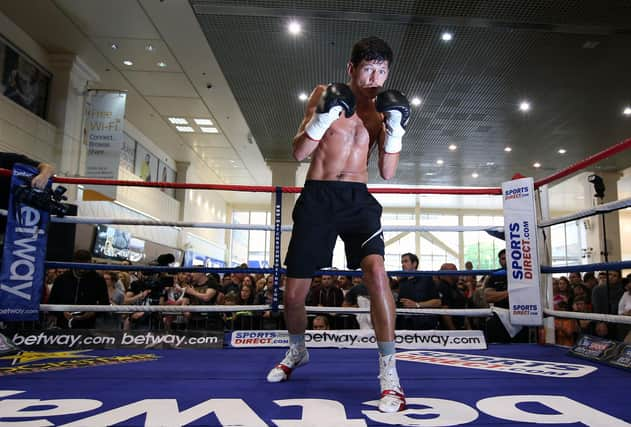

It was not a career that deserved to go out so quietly - yet it was probably fitting that it did so.
Jamie McDonnell operated under the radar for so much of his incredible boxing career that making a fuss over his retirement would have seemed out of sorts.
Advertisement
Hide AdAdvertisement
Hide AdDoncaster’s greatest ever boxer has hung up his gloves for the final time, announcing the end of his time in the ring with a simple social media post.
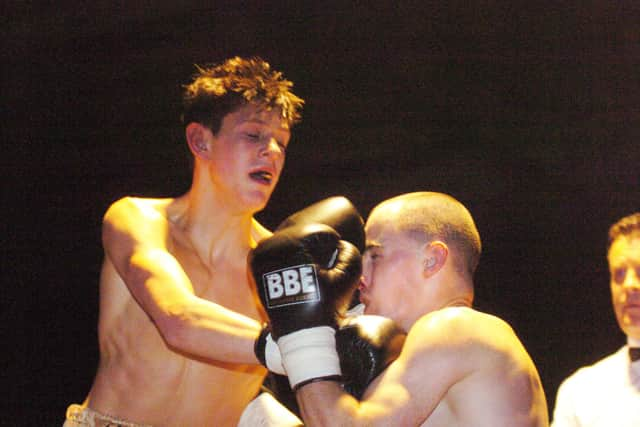

A professional career that spanned 14 years, taking him around the world and seeing him claim a phenomenal array of championships.
Two-time world champion, European champion, Commonwealth champion, British champion, English champion.
Thirty-five fights, 30 wins, including a glorious night under the lights at the Keepmoat Stadium when he claimed his first world title.
Advertisement
Hide AdAdvertisement
Hide AdFor a time, a plasterer who knocked around Dunscroft and Hatfield in his formative years had a solid claim to being the best bantamweight in the world.
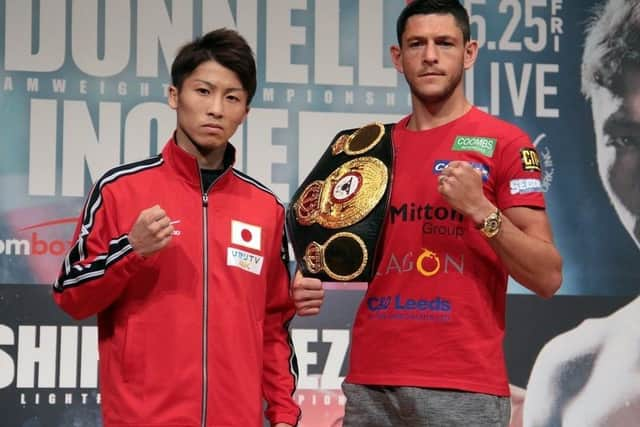

His height at the weight was an incredible tool and it helped him dominate contests against top quality opposition.
But it also came with a stunning level of natural ability and in-ring smarts to see him come through the toughest of tests.
McDonnell would always take too many shots for the liking of those with an interest in his success. But he was tough as teak, and equally adept at dealing with a close quarters, rough and tumble contest as he was at boxing his opponent’s head off.
Advertisement
Hide AdAdvertisement
Hide AdAll this for a lad who openly admitted to not being that big of a fan of the sport in which he made his name.
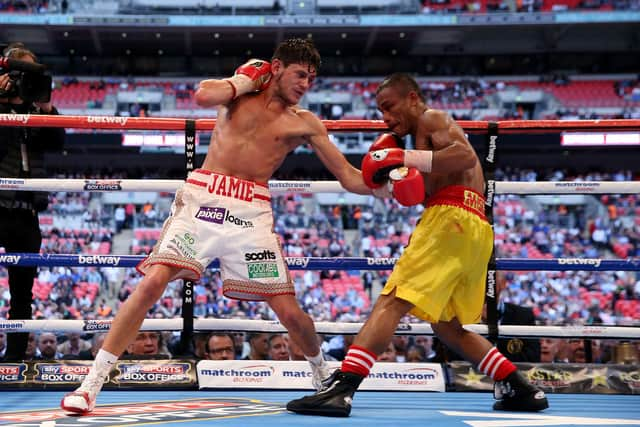

And for someone whose dedication to the hard work side of the game was rarely at maximum power.
He caused a few trainers headaches over the years with his wandering attention and how he chose to live his life between camps.
Plenty have lamented just how good McDonnell could have been if he had shown the same levels of commitment and dedication to the craft as his twin brother Gavin.
Advertisement
Hide AdAdvertisement
Hide AdAnd there were certainly more than a few fights where there were concerns going in that the strain of making the weight would prove to be his downfall.
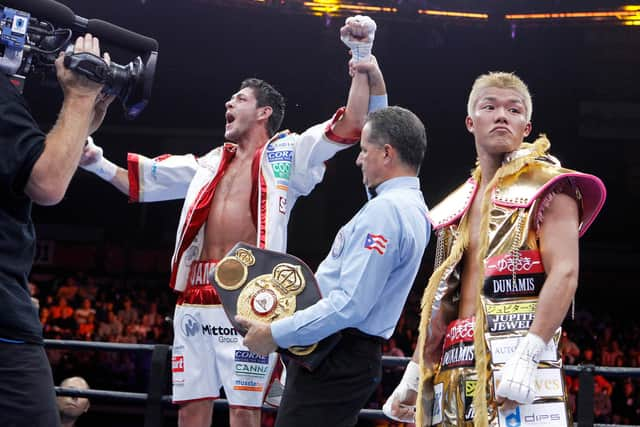

But he consistently and thrillingly produced when it mattered most, between the first and last bells in fights.
While the manner in which he would cut his weight during the first half of his career would have had sports scientists tearing out their hair, McDonnell had an undeniably superb engine when fight night came around.
What is not discussed nearly enough about McDonnell is the manner in which he brought himself back from adversity on more than one occasion.
Advertisement
Hide AdAdvertisement
Hide AdHis career could easily have been over in 2009. Back-to-back defeats in 2008 had halted his progress and seen his focus on the sport begin to seriously wane.
Building his resurgence on the quiet bills of promoter Dennis Hobson in Jersey did not help keep his mind on track but joining up with former gym mate Stefy Bull and trainer Dave Hulley in late 2009 proved to be a fresh catalyst.
He took a British title fight with wily veteran Ian Napa at short notice in January 2010 in a contest that was clearly designed to make the opponent look good before a planned European title shot two months later.
But McDonnell demonstrated his natural ability to emerge through a tight fight and claim the British crown, beginning his near decade-long stint as a dominant bantamweight.
Advertisement
Hide AdAdvertisement
Hide AdThe victory also saw him claim Napa’s place in the fight for the vacant European title against Jerome Arnaud in Cannes, France.
A tenth round stoppage later and McDonnell had gone from potential also-ran to bright star in the space of only three months.
What came next was a stunning period of his career, including a pair of ‘small hall’ classics with Stephane Jamoye and Stuart Hall with the European title up for grabs.
The Jamoye contest was arguably the best fight to be staged at the Dome, while the atmosphere for the ultra competitive Hall bout in the same venue was incredible.
Advertisement
Hide AdAdvertisement
Hide AdThese brilliant performances put him firmly on course for a world title showdown, with promoter Hobson working his magic behind-the-scenes.
And in the summer of 2013 came his crowning night, when he beat the vicious Mexican Julio Ceja at the Keepmoat in another brilliant fight to claim the IBF world title.
But just when his career appeared to have hit the stratosphere, he suffered a major setback.
He entered into a dispute with Hobson that would end their relationship acrimoniously, with McDonnell accusing the Sheffield-based promoter of not delivering his duties.
Advertisement
Hide AdAdvertisement
Hide AdAnd it would see him stripped of the IBF title for failing to agree a title defence within a stated timeframe, as his wrangling with Hobson disrupted plans.
McDonnell would join up with Matchroom Boxing chief Eddie Hearn but continued legal disputes held him back at a key point in his career.
It saw him take a pair of incredibly low key contests for a fighter who held the status of an undefeated world champion.
But Hearn was more than capable of working magic of his own and a year on from winning the IBF crown, McDonnell took the WBA regular title by demolishing Thai fighter Tabtimdaeng Na Rachawat at Wembley Stadium.
Advertisement
Hide AdAdvertisement
Hide AdArguably the pinnacle of his career came in 2015 when he twice beat Japan’s Tomoki Kameda in Texas. He got off the floor to win the first contest and returned four months later to deliver a dominant masterclass that will go down as one of the best travelling performances from a British fighter of all time.
Kameda had been WBO champion but that organisation did not rank McDonnell so the crown was not up for grabs.
It was between the two Kameda fights that McDonnell began training under his manager Dave Coldwell, who had stepped into the corner for the first bout in Texas.
Coldwell brought a more modern approach to training, employing the use of sports scientists and nutritionists which gave McDonnell a fresh boost and helped greatly with his discipline.
Advertisement
Hide AdAdvertisement
Hide AdThere was a bounce in the camp, particularly after the twin successes over Kameda and his ambitions were only growing.
But his hopes of unifying the division failed to materialise in a thoroughly frustrating period which brought only title defences against tricky opposition he was always expected to beat.
Sneers about his status as WBA ‘regular’ champion grew, even as his reign stretched to make him the longest standing British world champion at the time.
The brutal reality that boxing is a business bit hard on McDonnell. His lack of profile meant he was not the biggest draw at the box office, denying him the chance to build his brand in a self-perpetuating cycle.
Advertisement
Hide AdAdvertisement
Hide AdHis ability to deliver enthralling, competitive contests and the world title around his waist ensured he was always useful to Matchroom as he bolstered cards in need of credibility.
But the desire from the promoters to gamble on him with big money was never really there and so his opportunities to hoover up titles did not arise.
His run at the top ended with him accepting a fight he never really should have been in, when he travelled to Japan to face fast-rising, hard-hitting Naoya Inoue.
By this stage, McDonnell was simply too big to make bantamweight and by the time he reached the ring, he looked seriously ill rather than in the prime condition he needed to be in to see off one of the most ferocious punchers in the sport.
Advertisement
Hide AdAdvertisement
Hide AdA vicious first round stoppage brought the end to his title run.
He attempted a comeback at featherweight but it never got off the ground, and what would prove to be his last fight took place away from the TV cameras in Italy, with a routine victory.
Issues in his personal life had a major impact on his ability to step back in the ring. He returned to Bull’s gym to work alongside his brother and other familiar faces from throughout his career but his dedication to training came in stints rather than a sustained period.
A bloody good career did not warrant such a timid petering out.
Advertisement
Hide AdAdvertisement
Hide AdHe may never have received the fanfare he deserved, but no one can take away from the stunning achievements of a natural born fighter.
Doncaster’s greatest.